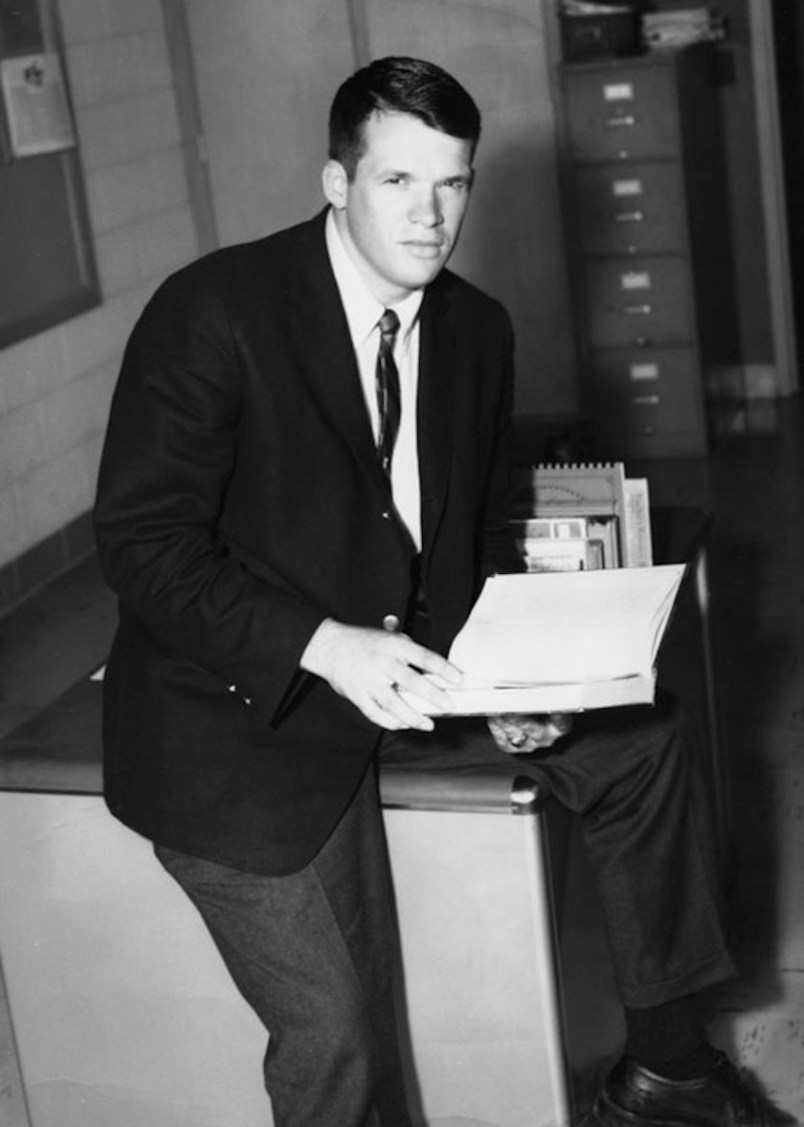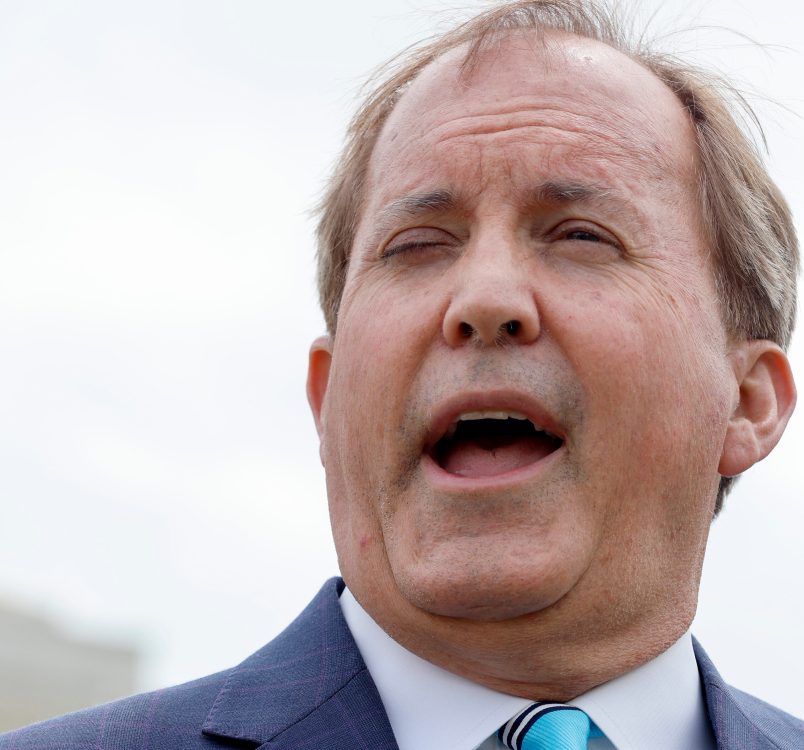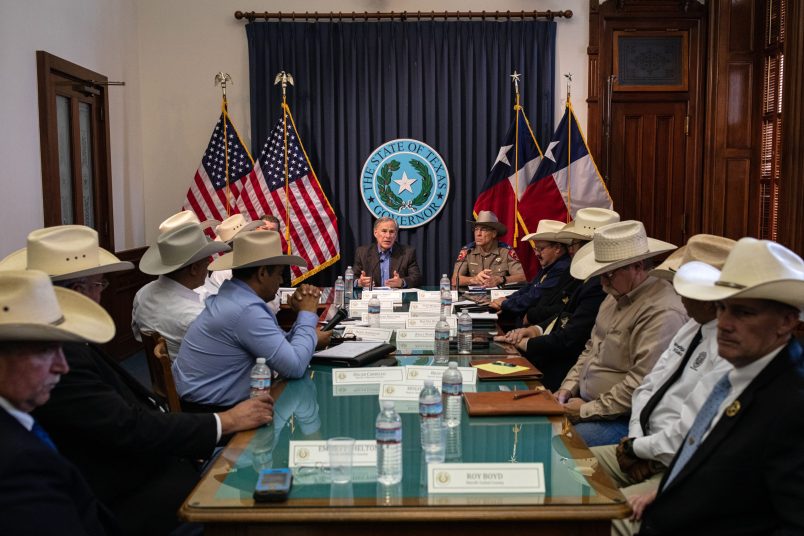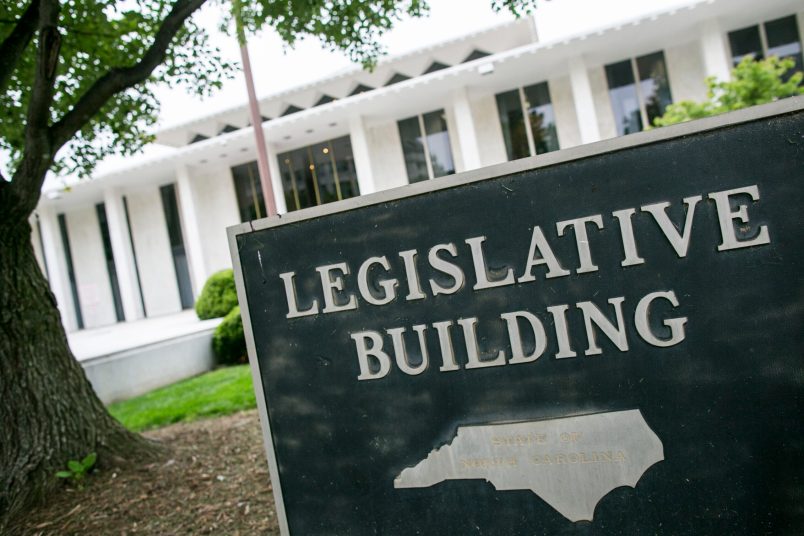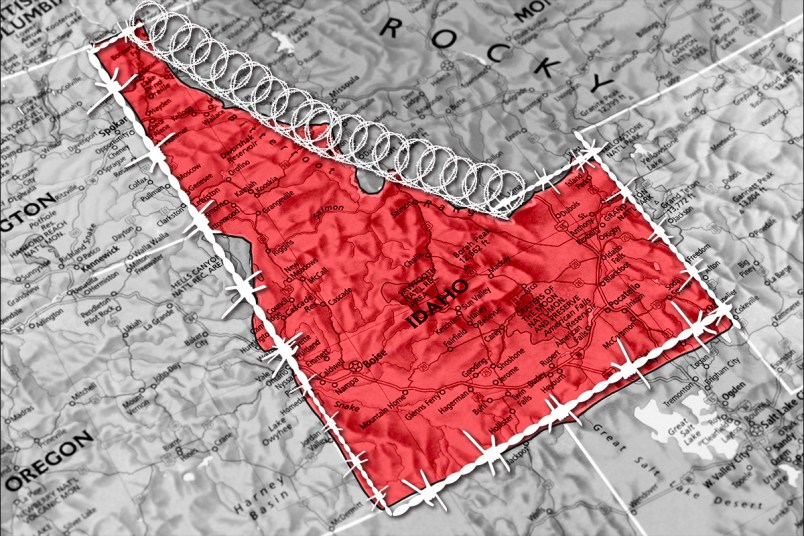It’s been more than a week since former House Speaker Dennis Hastert (R-IL) was indicted on banking charges, but central questions related to his case and the sex abuse allegations that subsequently surfaced remain unanswered.
Hastert is scheduled to be arraigned Tuesday in U.S. district court in Chicago. It’s unclear whether the former speaker’s first court appearance will resolve any of the outstanding mysteries in his unusual case, including who “Individual A” is and how many people Hastert has been accused of sexually abusing during his years as a high school teacher and coach. But if he does appear in person before a federal judge, he can expect questions like these to be shouted at him from the press scrum outside the courthouse.
Who is “Individual A?”
Perhaps the greatest unsolved mystery in the Hastert scandal is the identity of “Individual A,” the person to whom the indictment alleges Hastert made covert, all-cash payments for a period of four years. The only information about “Individual A” that the indictment provides is that the person lived most of his or her life in Yorkville, Illinois and also knew Hastert for the majority of his or her life. Hastert was a teacher and wrestling coach at Yorkville High School from 1965 to 1981.
Subsequent reports from the Los Angeles Times and NBC News, which cited anonymous federal law enforcement sources, said that “Individual A” was a male student at the high school where Hastert taught and that the “prior misconduct” against the individual was sexual abuse.
It’s unclear when, if ever, “Individual A” will come forward publicly.
Was “Individual A” extorting Hastert?
Hastert made recurring payments to “Individual A” after the two started meeting up in 2010, according to the indictment. The indictment stated that during at least one meeting, “Individual A and defendant discussed past misconduct by defendant against Individual A that had occurred years earlier.” It also alleged that at some point during those meetings Hastert agreed to pay $3.5 million to “compensate for and conceal” that past misconduct. The indictment did not label that agreement extortion, however.
The document shows that at one point investigators were concerned Hastert may have been a victim of extortion, possibly related to his prior position as House speaker, and thus structured his cash withdrawals to avoid triggering federal reporting requirements. But when the FBI questioned Hastert about the withdrawals in December 2014, he was quoted in the indictment as responding, “Yeah…I kept the cash. That’s what I’m doing” — effectively denying that he was a victim of extortion.
CNN cited anonymous federal law enforcement sources who said investigators declined to pursue extortion charges in Hastert’s case. But absent any on-the-record assurances, “Individual A” isn’t entirely immune from criminal charges. Legal experts told The Wall Street Journal that the person may be temporarily avoiding charges while cooperating with prosecutors, or already may have been charged in a sealed indictment.
Why did the alleged agreement take place in 2010?
The indictment and subsequent reports suggested that the “prior misconduct,” or reported sexual abuse, against “Individual A” occurred sometime between 1965 and 1981, when Hastert was still teaching and coaching at Yorkville High School. Hastert went on to be elected to Congress and later, from 1999 to 2007, enjoyed the longest tenure as House speaker of any Republican in history.
But the alleged hush money agreement was struck in 2010, according to the indictment. The document gave no indication of what may have motivated “Individual A” and Hastert to start meeting with each other, prompting questions about timing: why discuss the matter so many decades after the past misconduct took place? If “Individual A” was indeed extorting Hastert, why do it after the former speaker was out of office?
How many alleged victims are there?
There appear to be at least two alleged victims so far and possibly a third: “Individual A,” a purported “Individual B” and a dead man named Steve Reinboldt, respectively.
The possibility of an “Individual B” first surfaced in a BuzzFeed News report. An anonymous source familiar with the Hastert case told the news site that there were potentially several people against whom Hastert had committed “prior misdeeds.” The source added that U.S. Attorney Zachary Fardon at one point considered bringing additional charges against Hastert in regards to an “Individual B.”
Then on Friday, a woman came forward to ABC News to identify her deceased brother Steve Reinboldt as an alleged victim of Hastert’s abuse. We can’t be sure Reinboldt is not “Individual B,” but there are some compelling reasons to believe that they are not one and the same. Reinboldt’s sister told ABC News that the FBI contacted her two weeks ago, just days before the indictment against Hastert was unveiled. Steve Reinbolt died in 1995, so investigators couldn’t have spoken to him, either. Given that information, it seems unlikely that prosecutors would have had enough information about Hastert’s alleged abuse of Reinboldt to consider bringing additional charges.
It’s possible that even more alleged victims could come forward as Hastert’s case plays out in court.
Will Hastert fight the charges?
Hastert has gone virtually underground since the indictment was unveiled on May 28. Neither he nor his representatives have issued any public comment on the charges (or the sex abuse allegations), making it difficult to ascertain whether the former speaker plans to fight the charges.
The only clue we have is what Hastert has reportedly been telling his friends and associates behind-the-scenes. The former speaker was telling those close to him “I am a victim, too,” according to Chicago TV station WBBM. It’s unclear how Hastert views himself as a victim — of extortion? of media scrutiny? of public opinion? — so that statement doesn’t indicate much about his legal strategy, either. But at least followers of the Hastert case may see light shed on this one question at Tuesday’s arraignment.


